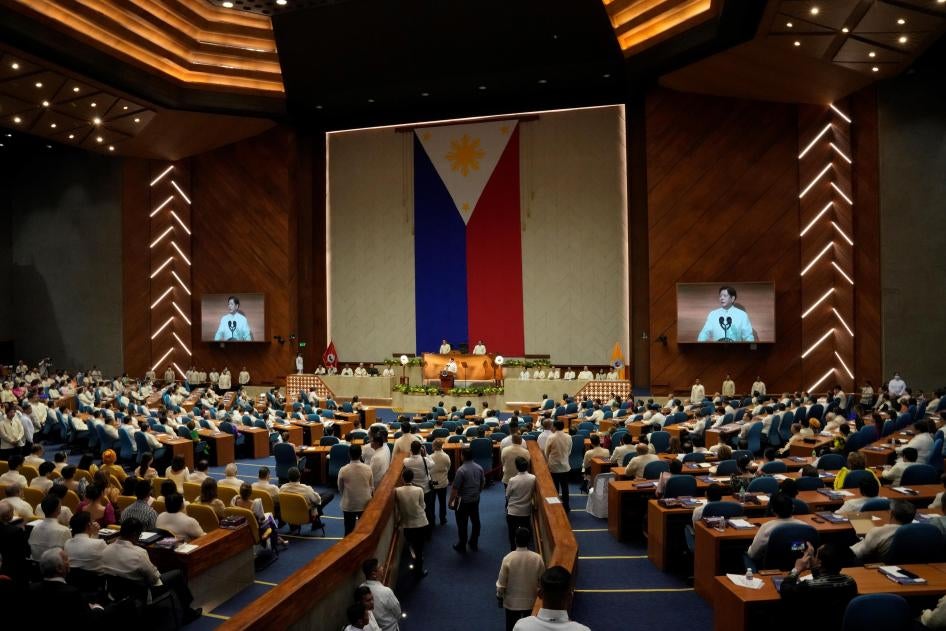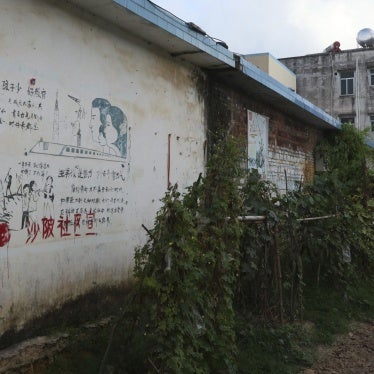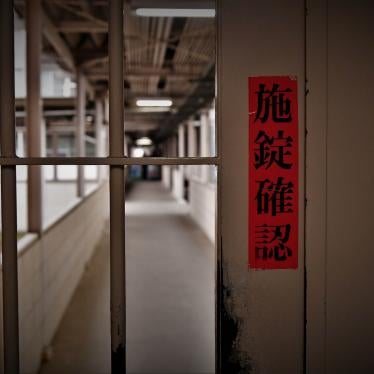(Manila) – Threats by members of the Philippine Congress to defund the national human rights commission have resulted in its weakening of support for abortion rights, Human Rights Watch said today. The lawmakers’ action against the Commission on Human Rights (CHR) not only undermines the commission’s ability to protect reproductive rights in the Philippines but imperils all of the commission’s work to protect human rights.
Members of the Philippine Senate and House of Representatives said during deliberations on the national budget during the week of November 13, 2023, that they would seek to eliminate funding for the commission, which is mandated under the 1987 constitution. One senator said the commission should be given “zero” budget unless it demonstrated a “strong stance” against abortion. On November 15, the commission chairperson, Richard Palpal-latoc, backtracked on the commission’s position in support of abortion rights and declared that the commission was “against abortion, save for extreme circumstances.”
“The Philippines Commission on Human Rights can’t properly function to protect human rights when legislators are threatening its existence,” said Bryony Lau, deputy Asia director at Human Rights Watch. “The Philippines government, including the human rights commission, has responsibilities to ensure that women and girls can exercise bodily autonomy and access safe abortions as part of their basic human rights.”
The lawmakers opposing funding for the commission cited a September statement by its executive director, Jacqueline de Guia, in support of new legislation to decriminalize abortion, which has long been illegal in the Philippines.
Women’s rights advocates in the Philippines have long fought for the decriminalization of abortion, citing study after study that shows that women in the Philippines are forced to undergo clandestine and unsafe conditions to get an abortion, putting themselves at serious risk. The Roman Catholic Church and Christian groups, as well as conservative lawmakers, have resisted any such initiatives. Congress has not acted on a proposed bill to amend the Revised Penal Code to decriminalize abortion.
Governments as part of their core human rights responsibilities have an obligation to provide women, girls, and other pregnant people with access to safe and legal abortions, Human Rights Watch said. International human rights law and relevant jurisprudence support the conclusion that decisions about abortion belong to a pregnant person alone, without interference or unreasonable restriction by the state or third parties.
As a party to the United Nations Convention on the Elimination of All Forms of Discrimination Against Women, the Philippines is obligated to ensure women’s right to health and bodily autonomy, including making decisions around pregnancy and abortion.
The Philippine Congress has previously tried to slash the commission’s budget. In 2017, at the height of the government’s abusive “war on drugs,” then President Rodrigo Duterte proposed a 1,000 peso budget – US $20 – for the commission because, as one Duterte ally in Congress put it, the commission was “defending criminals.” Although the proposed cut was not adopted, the commission was still depicted as the “enemy” for defending the rights of “drug war” victims and their families.
The Commission on Human Rights, established after the “People Power” uprising that ousted the dictatorship of Ferdinand Marcos Sr., was the first national human rights commission in Asia, inspiring similar commissions in other countries. For many years it has been a weak institution, though, unable to fulfill its mandate, partly due to a lack of funding and powers, such as issuing subpoenas, needed for investigations. The commission found a firmer footing and stronger voice under chairperson Leila de Lima, who served from 2008 to 2010. Congress has not acted upon a pending proposal to draft a charter for the commission that would strengthen its mandate.
Spain, among other countries, has sought for years to strengthen the commission. The commission is a key institutional partner of the UN to implement the UN Joint Program on Human Rights.
“The Philippines needs an independent, well-funded national human rights body to address the most egregious rights violations in the country and protect the rights of all Filipinos,” Lau said. “By threatening the CHR’s budget, these lawmakers are trying to render the constitutionally mandated body useless.”







